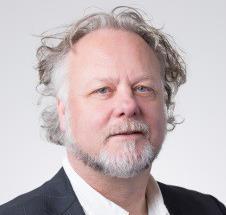THE TEAM
■ ■ ■
P ROF D R E MILE W ENNEKES is Chair Professor of Musicology: Music and Media and cocoordinator of the Applied Musicology Master programme


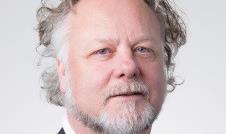
■ ■ ■
D R A NNELIES A NDRIES is a historical musicologist and specialist in how history was represented through opera in France during Napoleon I’s reign.
■ ■ ■
D R M ICHIEL K AMP is a specialist in the emerging fields of game research and music.
■ ■ ■
D R R EBEKAH A HRENDT is a specialist in music of the seventeenth and eighteenth centuries, as well as the history of music in diplomacy
■ ■ ■
M ARCEL B OUVRIE MA is parttime lecturer specialised in film music
■ ■ ■
D R . K IM - J OHAN R AMSTEDT is a cultural musicologist, DJ and journalist.
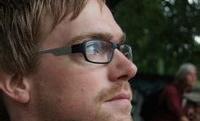
■ ■ ■
D R S EBASTIAN W EDLER is a historical musicologist and specialist in twentieth century classical music.
■ ■ ■
D R . F LORIS S CHUILING is a specialist in the study of improvisation, anthropology and philosophy of music.
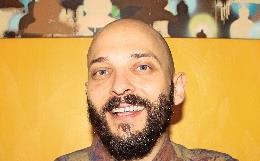
■ ■ ■
D R R UXANDRA M ARINESCU is a specialist in the music culture of late-medieval France.
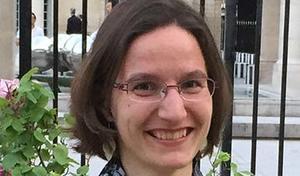
■ ■ ■
D R M AARTEN W ALRAVENF REELING is part-time APLM lecturer and Head of Operations & Productions at Symphony.


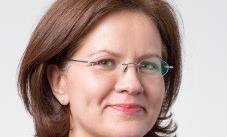
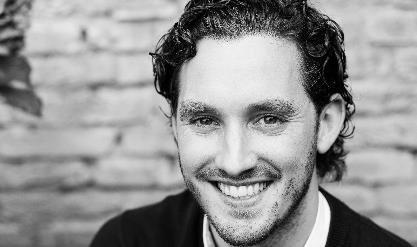
STUDY ADVISOR & STUDENT WELLBEING
For issues regarding your health and wellbeing there are several sources of support at the university. There are the wellbeing trainers who offer various sessions and trainings that focus on the personal side of professional and academic development. More information can be found here: https://students.uu.nl/en/hum/personal-development/wellbeing-trainers. This page also contains links to various other sources if personal problems stand in the way of studying.
You can contact the study advisor, Maaike Wouda, when you have questions regarding choices and planning which involve your studies. The study advisor can also give advice when personal circumstances affect your studies.
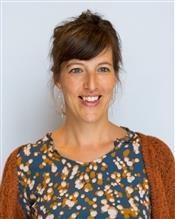
If you expect that you might fall behind in your studies or if you have a disability, please see the Study Advisor in an early stage.
For more information: https://students.uu.nl/en/hum/applied- musicology/contact/study-advisor
Other student support and well-being
The UU offers all kinds of support in the field of wellbeing. Good health and wellbeing are not only crucial ingredients for a good and effective student life, they contribute to a rewarding professional life after your studies as well.
That is why we offer you the opportunity to focus on the personal side of professional development in addition to the academic development you are going through.
In that context, we offer various (group) activities to support your well-being that help with staying resilient and flexible, capable of dealing with stress, procrastination and perfectionism, focusing on what is important and being able to make decisions.
Take a look at our website for the training offer: https://students.uu.nl/en/hum/personal-development/wellbeing-trainers Check this link for further information and weblinks to various student services.
STUDY ASSOCIATION
‘Hucbald’ is the association of musicology students of Utrecht University. Named after the medieval musical monk from St. Amand, the association organises studyrelated as well as social activities for its hundred-plus members. Annually, its various committees programme a choir project, a family meeting day, activities for alumni, as well as a trip to a musical destination abroad. Hucbald collaborates closely with Utrecht University to keep optimising the student’s experience of the Musicology programmes.
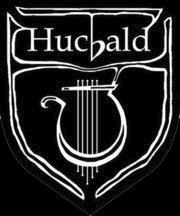
Mailing address:
Muntstraat 2A
3512 EV Utrecht
Visiting address:
Muntstraat 2A, room T3.11
030 253 9345
hucbald@hucbald.nl
www.hucbald.nl
■ ■ ■ M AAIKE W OUDA
PROGRAMME INFORMATION
Programme outline
The faculty’s teaching format comprises two semesters, each divided into two blocks of ten weeks. In each block, you will take three courses of 5 ECTS each. As explained above, the programme is divided into an ‘ensemble semester’ and a ‘solo semester’
The first semester is the ‘ensemble’ semester. Spread over the first two blocks, you will find three parallel tracks:
(1) Musicological Fundamentals,
(2) Music, Media and the Infrastructure,
(3) Musical Knack Lab.
In the second, ‘solo semester’ you will undertake your internship and write your thesis.
For more information, look at our website : https://students.uu.nl/en/hum/applied-musicology/curriculum
COURSE PLANNER: You will find more information on this programme’s courses in the Course Planner:
https://cursusplanner.scien ce.uu.nl/english/study/ACAPLM-16
Current Musicology Elective
Musical Infrastructure in an International Context Elective
Internship (15 EC)
and/or
Thesis (15 EC)
Internship (15 EC)

and/or
Thesis (15 EC)
Writing about Music: Historical Context, Contemporary Competencies
Staging Music: Programs, Productions, Policies and Pecunia Ensemble Semester
During the first semester, the track Musicological Fundamentals is jointly offered with the Research Master’s Programme Musicology. You will get to know the actual, state of the art debates within the musicological discipline in the compulsory course Current Musicology (block 1). In block 2 this track will be continued by choosing an elective seminar. If you plan to broaden your horizon into more interdisciplinary territory, several options will be offered by the Department of Media and Culture Studies. If you prefer to deepen your disciplinary knowledge, then a seminar on a topic on Historical Musicology would be recommended. Internal electives this year will be the courses Music and the Moving Image, and Musical Encounters.
Parallel to the first track, you will follow two courses that address the core theory of the
Block 1 Block 2 Block 3 Block 4
programme within Music, Media and the Infrastructure. In the first block you will follow the compulsory course Musical Infrastructure in an International Context. In the second block, you will choose again an elective course from the set offered by the Department.
Applied skills and practical training of required competencies will be offered by the two compulsory courses in the Musical Knack Lab track. In the first block you will follow the course Writing about Music: Historical Context, Contemporary Competencies; in the second block the course Staging Music: Programs, Productions, Policies and Pecunia is scheduled.
Solo Semester
The second semester (also two blocks) is the ‘solo semester’, in which you devote your time to individual internship(s), as well as undertake the research for, and writing the Master’s Thesis. You can either do your internship and write your thesis in separate blocks (see schedule underneath), or you devote your time between internship and thesis, spreading both over two blocks (option not in schedule)
Courses
In this paragraph the context of the courses will be described. For the electives two courses are suggested. You may change these to different ones from the course planner: take a look at https://cursusplanner.science.uu.nl/english/study/AC-APLM-16
T RACK 1: MUSICOLOGICAL FUNDAMENTALS
Current Musicology (compulsory) Musical Encounters (suggested elective)
T RACK 2: M USIC , M EDIA AND THE I NFRASTRUCTURE
Musical Infrastructure in an International Context (Compulsory) Music and the Moving Image (suggested elective)
T RACK 3: M USICAL K NACK L AB
Writing about Music: Historical Context, Contemporary Competencies (compulsory)
Staging Music: Programs, Productions, Policies & Pecunia (compulsory)
CAREER ORIENTATION
Throughout the programme, we intend to connect Academia and the ‘professional world’. There are several reflective moments incorporated in classes and there are choices to be made regarding assignments that can individualise your path through this master programme.
Professionals active in the Dutch musical infrastructure will join our programme through your internship you actively participate in the working field. However, it is also advisable to prepare yourself for your future career during your master at a more general level. Research has shown that the following phases are essential: reflecting on your motivation and work values, researching your opportunities on the job market, creating ties with potential employers and practicing skills as needed for your job application and the following interview. This way, you will establish yourself as a professional.
Utrecht University’s Career Services offers events, workshops and tests related to career orientation and job application skills, starting with a career check, which creates an action plan and offers advice on what to do during your studies: reflect, explore, connect & get skilled. For more information go to: https://students.uu.nl/en/hum/applied-musicology/career-services
Career Services workshops might be incorporated in your master programme (ask your coordinator) but you are also welcome to join (other) workshops as an individual, for which you can register at
https://students.uu.nl/en/hum/career-services/workshops-career-services ), on the following topics: LinkedIn | writing a curriculum and cover letter | transferable skills | working consciously & effectively.
Career Services also offers several online tests: the career check, work values test, career choice test, personality test, and competence test (https://uucareercheck.nl/site); hosts an online vacancy site (uu.jobteaser.com); and organizes events such as the Humanities Career Night (https://carrierenachtgw.nl/en/), which takes place on, the UU CareersDay (https://carrieredaguu.nl) monthly evenings on Your Perspective: Career Opportunities for Humanities Graduates and twice a year a Curriculum checks and LinkedIn photo shoots. Visit www.uu.nl/careerservices for more information and check your email, blackboard or Facebook- and LinkedIn- groups for announcements.
INTERNSHIP
The internship is (together with the thesis) part of an individual trajectory. The exact activities, mode of working and schedule will depend on the nature of the internship. They are agreed upon prior to the beginning of the internship and established in a written agreement. During the internship the student actively participates in the working field. Professional and academic skills will be evaluated, as reflected in the quality of the internship report. The aim of the internship is for the student to gain practical work experience and to reflect on professional practice under the supervision both of a staff member of the organisation and the student's tutor.
The internship allows the student to gain hands-on experience in a practice of his/her choice within the field of arts and society. Prior to the internship, students define their goals and intentions; during the internship, students engage in practical work and reflect on this engagement; after the internship is complete, students reflect on their experience in a written report. For more information about the internship see: https://students.uu.nl/en/hum/applied-musicology/curriculum/internships
In the recent past, students have undertaken their internships with institutions listed underneath. You are free to choose others, but do discuss this with your instructor.
NTR
AVRO Tros
VPRO
Brava TV
Koninklijk Concertgebouw & Orkest
Het Metropole Orkest
De Doelen
TivoliVredenburg
Muziekgebouw Eindhoven
Muziekgebouw aan ’t IJ
Gaudeamus Muziekweek
Nederlands Muziek Instituut
International Liszt Competition
Utrecht Festival Oude Muziek
Alferink Music Management
De Kunstbende
De Popronde
De Klassieke Muziek Coalitie
Straight Shooter Publishing
Calefax Reed Quintet
Nederlands Kamerkoor
Holland Baroque
Nederlandse Bach Vereniging
Universal Music
Dox Records
BMG Publishing
Radio 4
Concertgebouw Brugge
Holland Festival
Pentatone
Concertzender
Wonderfeel
Artist Management Ralph van Raat
Dutch National Opera & Ballet
Bärenreiter publishers (Cologne)
Boilrer Room (Berlin)
VERA
Stingray
Babylon (Dublin)
Once you have handed in the internship contract at the Student Desk you will be enrolled for the internship, this does not happen through Osiris! It is your responsibility to find a good internship placement and to take care of all the paperwork at the Internship Office.
THESIS
Your programme will be concluded with a thesis. This thesis is the last course in the Master’s programme in which you apply the skills, knowledge and insights that you have acquired during the programme. You do independent research and write an academic or practice based thesis based on the gathered information. The Master's Thesis is an academic report in which the student makes an independent and original contribution to research in the domain of Arts and Society. The report is based on a research question that is answered by the student's research.
The thesis should be the product of guided, independent research on a chosen topic. The thesis should demonstrate that the student is able to produce new scholarly knowledge and insight and can share this insight with others.
A thesis is a scholarly work in which the student is expected to contribute, on the basis of independent research, to the ongoing discourse within his/her discipline. It should be structured around a central research question or aim (set out in the introductory sections) to which it provides an answer (set out in the conclusion).
The student should formulate the central research question or aim at the outset and demonstrate its relevance in relation to the scholarly literature on the topic. The body of the thesis should include a lucid account of how the student operationalized his/her research and a presentation and analysis of the research findings. In the conclusion of the thesis, the student should relate his/her findings to the original research question, discuss the broader implications of the findings, and make recommendations for future research on thetopic.
You will find more information at: https://students.uu.nl/en/hum/applied-musicology/curriculum/mastersthesis
IMPORTANT FOR HUMANITIES STUDENTS
New students students.uu.nl/hum-new Practical information for new students at the Humanities faculty.
Academic calendar students.uu.nl/hum-calendar
Information about days off, course registrations and change-of-enrolment days.
UU online

Information about our online systems and how to log in: students.uu.nl/hum-online In need of a manual? IT manuals: https://manuals.uu.nl/en
REGISTRATION, PROCEDURES, INTERNSHIP INFO
Student Information Desk Humanities students.uu.nl/hum-contact
Programme related matters, such as
• course registration
• course schedules
• study results & study progress (Osiris)
• graduation
Student Services students.uu.nl/en/contact/student-services
Studying at Utrecht University in general:
• registration as a UU student

• tuition fees
• elite athletes
• disability or chronic illness
Internship coordinator students.uu.nl/hum-internshipcoordinator


Information about:
• guidelines and procedures
• internship placements
QUESTIONS ABOUT ENTERING THE JOB MARKET
Career Services students.uu.nl/hum-careerservices
Advice on getting a job after graduation through workshops, CV check-up, and coaching. Your programme coordinator will inform you about programme-specific events.
NEED EXTRA HELP?
Study advisor: students.uu.nl/hum-studyadvisor






Student psychologist: students.uu.nl/psychologist
Workshops: Skills Lab: students.uu.nl/en-skillslab
THINKING OF GOING ABROAD ?
International office Humanities: students.uu.nl/hum-io
OTHER FACILITIES
University Library: students.uu.nl/hum-library
Olympos sports centre: olympos.nl/en-us/home.aspx
Parnassos cultural centre: uu.nl/en/parnassos
FACT! You can find your grades, student card and timetable in the MyUU portal and the MyUU app: students.uu.nl/en/myuu and students.uu.nl/en/ myuu-app
FACT! In the second semester, you will have to register in Osiris for courses you wish to attend. If you want to switch courses, you can do so on the change-ofenrolment days before the start of the relevant block.
FACT! Deadlines are always listed in the course syllabus, which your lecturer will provide approximately 2 weeks prior to the course’s ’start.
FACT! If you need more information about specific aspects of your programme, e.g. internships or thesis, please see the Curriculum page on the programme website via students.uu.nl/hum.
FACT! Check students. uu.nl/hum-studentlife for information about living, jobs, sports and leisure in Utrecht!
© June 2023. Utrecht University, Faculty of Humanities. Every effort has been made to ensure that the information presented in this factsheet is correct and up to date Utrecht University cannot be held liable for any false, inaccurate, or incomplete information presented herein
